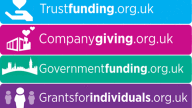3 top tips for managing your charity cash flow
In order to work towards your charity's mission you need good cashflow management
For anyone running a business, the well-known saying ‘Cash is King’ is a fundamental mantra to the management of any operation, and this is no different for charities. The most common reason for business failure is the inability to meet financial obligations when they’re due, and those working in charity finance departments should not ignore this fact either. We share our top tips for managing your charity cash flow:
1.Get cash in from donors and clients quickly
Firstly, when it comes to project funding, you’ll be at an advantage if you are able to get as much advance as possible so you won’t have to deplete your own reserves. Alongside this, a large part of ensuring effective cash flow within your charity lies with how organised your financial team is. All invoices and subsequent claims must be submitted as quickly as possible and all outstanding fees or payments must be chased immediately, in order to keep cash coming in and allowing funds to be pumped back into meaningful endeavours.
Another way to guarantee your charity has the money to work towards its mission is to agree on invoicing based on estimates from donors and clients, rather than hanging around waiting for actual costs. These costs can be easily adjusted later and will allow your financials to run more smoothly.
2.Manage payments successfully
Charity cash flow is just as much about keeping money coming in, as it is about effectively managing the money going out. Every charity aims to fundraise for worthwhile projects, but as you know, these ventures require resources and thus payments need to be made. There are a number of ways to keep on top of these outgoings; it just requires some forward thinking.
If there are no financial penalties it can be useful to pay significant amounts on a monthly basis, rather than paying for a whole year upfront for example, so consider this when planning to pay for reoccurring costs. Other worthwhile planning includes negotiating payments in arrears rather than in advance and agreeing on longer credit terms with suppliers, rather than being late on payments. And of course, let’s not forget- always keeping suppliers on good terms can prove extremely beneficial!
3.Have a bridging arrangement
Charity finances can be up and down, and recently there has been a lot of speculation on how charities handle their financial affairs. In order to prevent panic, which could then lead to undue behaviour, it is imperative to follow some essential procedures to tide you over before your next payment comes in.
One thing is to check that you have an overdraft. This may seem obvious, but often overdrafts are only ever set up when you are in desperate need. However, if your charity already has an overdraft in place and if the time calls for it, you won’t be scrambling around trying to get things back in order. It is also vital that if your charity experiences an unexpected event which requires unplanned spending, you will need to have easy access to reserve cash or quick-cash investments where funds can be found to cover any shortfalls.
In most cases, these measures are small changes which can make a significant difference to your charity’s finance department, as well as your charity cash flow.

